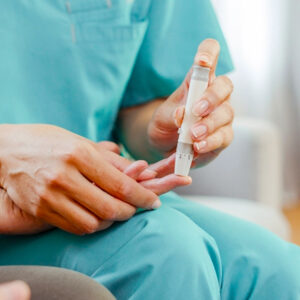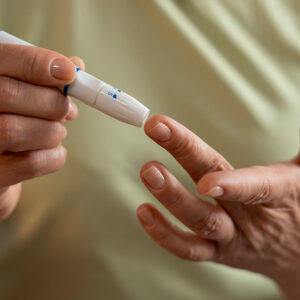
Can diabetes (Type 2 Diabetes) be surgically treated?
In fact, it has long been known that coexisting diabetes in obesity is treated to varying extents with bariatric surgery. The new information is that it is also curable with surgery, called metabolic surgery, in non-morbidly obese patients, that is, patients with a body mass index ranging from 27 to 35 kg/m2. Patients with uncontrolled diabetes despite all kinds of measure achieve complete recovery up to 80% with surgery. At this point, patient selection is very important. The patient’s age, duration of diabetes, eating habits, other comorbid diseases give clues about whether or not the patient will benefit from surgery.In fact, although very similar techniques are used with bariatric surgery, the goal here is not to provide too much weight loss, but to increase the strength of the current insulin of the patient to obtain blood sugar control. A certain amount of weight loss is absolutely obtained, but it can also be performed safely on patients who are not morbidly obese and it has been proved to be effective.
Aslında obezite ameliyatı ile çok benzer teknikler kullanılmakla beraber, buradaki hedef hastada çok fazla kilo kaybı sağlamak değil, hastanın mevcut insülininin gücünü arttırarak kan şekeri kontrolünü sağlamaktır. Bir miktar kilo kaybı mutlaka sağlanır ama aşırı şişman olmayan hastalarda da güvenle uygulanabilir ve etkinliği ispatlanmıştır.
What does complete recovery mean in diabetes?
It means that the patient attains normal blood sugar and normal HbA1c (test showing long-term blood sugar) levels by discontinuing all the drugs and insulin used due to diabetes. With the right patient and right surgery selection, more than 80% of patients achieve complete recovery of diabetes in the second year. The majority of the remaining 20% of the patient group also achieve partial recovery. Partial recovery means lowering the drug doses but maintaining the blood sugar control by continuing the drugs.
What other diseases do improve with surgery for diabetes (metabolic surgery)?
The reason for calling this method metabolic surgery is because it cures many diseases, including diabetes, which is called metabolic syndrome. Hypertension, sleep apnea, asthma, cholesterol disorders, fatty liver disease, gout, joint diseases such as herniated disc, even migraine may recover to varying extents. Naturally, the risk of heart attack also decreases in the postoperative period.The likelihood of developing breast and uterine cancer is significantly reduced in female patients. Moreover, the likelihood of developing colorectal cancer, esophageal cancer, kidney cancer, pancreatic cancer is reduced. Furthermore, the risk of heart attack also decreases.
Which surgery for which patient
The patient group in which sleeve gastrectomy is preferred: The body mass index of the patient is the first determinant. Performing bypass surgery in patients with a body mass index greater than 60kg/m2 may be too risky to be acceptable. Therefore, sleeve gastrectomy surgery is suitable for these patients in the first place. In addition, patients with inflammatory bowel disease and intestinal adhesion due to previous surgery are not eligible for bypass surgery.In general, sleeve gastrectomy surgery is not recommended for very young and very old patients and for patients who have to use immunosuppressive drugs.
Roux en Y bypass is known to be the most effective treatment method for metabolic syndrome. We have very long-term results. The long-term effects of this surgery, which has been performed for more than 40 years, are well-known. Mini gastric bypass has provided similar results with Roux-en Y bypass in the early period. Long term results are not well-known. Transit bipartition surgery is a much newer type of surgery than other mentioned surgeries. Again, in the early period, it provides similar results with Roux-en Y bypass. Since very severe vitamin and mineral deficiencies develop after single-anastomosis duodeno-ileal bypass (SADI) surgery, it is almost never performed in our day.
Will I use lifelong vitamin pills after bypass?
In fact, people, who never had any surgery, also have a high rate of vitamin deficiency. Patients, who experience rapid weight loss, may have some vitamin and mineral deficiencies, whether they underwent bypass or sleeve gastrectomy. These deficiencies can be improved easily with supportive treatments. About 30-35% of patients use vitamin supplements for a long time and sometimes for a lifetime. Of the patients, 65-70% do not need after using them for a period of time then discontinue. The intestinal tract can adapt to the new condition after a while.
Is weight regained more common after sleeve gastrectomy compared with the bypass?
In fact, the history of sleeve gastrectomy surgery has the answer to this question. Sleeve gastrectomy surgery was first started to be performed as part of a biliopancreatic diversion surgery. When it was started to be performed, as it was considered that for some patients who should undergo two surgeries a single session was risky and that it would be more appropriate to perform the second surgery after sleeve gastrectomy. When it was realized that some weight has been lost after the first surgery, even the surgeon who performed the surgery was surprised since there was no need for a second surgery in 75% of the patients. However, since one-fourth of the patients still needed a second operation, in this case, it was too early to declare it as a single operation. After the conducted studies and a few changes on the technique, sleeve gastrectomy has been started to be performed as is known today. Unfortunately, sleeve gastrectomy surgery carried out with the latest technique may fail to provide adequate weight loss in 10 to 15% of patients.
It is more guaranteed if I had a bypass. Do I regain weight after bypass?
Unfortunately, it is possible to regain weight after gastric bypass surgery even though it is low. Although the possibility of regaining weight is lower compared with sleeve gastrectomy, the potential of revision is not as likely as in sleeve gastrectomy when weight gain occurs.







